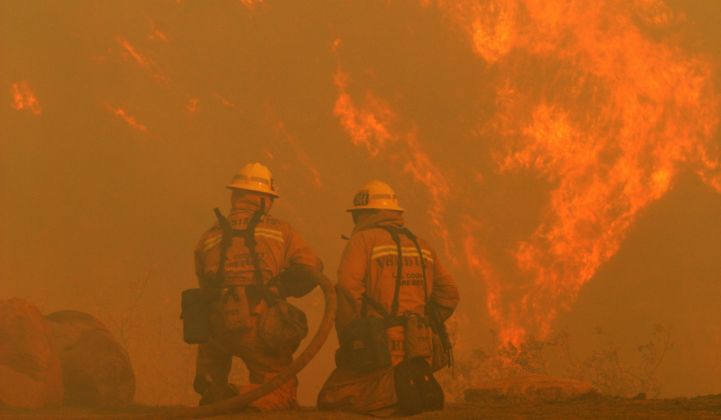California regulators have launched a review of Pacific Gas & Electric’s “corporate governance, structure and operations,” to address the safety problems that led to the utility’s deadly San Bruno pipeline explosion and may have played a role in the deadly wildfires of the past two years.
California Public Utilities Commission President Michael Picker announced the review on Thursday, as part of the CPUC’s decision to order PG&E to implement a wide-ranging set of safety measures in response to the 2010 pipeline explosion, which killed eight people and destroyed a neighborhood.
But it also comes as PG&E is struggling with the threat of bankruptcy, if it's found liable for the multibillion-dollar damages of last year’s Tubbs Fire and this month’s Camp Fire.
In a Thursday statement, Picker wrote, “Although there are a few bright spots, PG&E appears not to have a clear vision for safety programs and instead pursues many programs without thought to how they fit together, despite eight years passing since the explosion in San Bruno.”
As a result, he says, “I plan to open a new phase in this proceeding to examine the corporate governance, structure, and operation of PG&E to determine the best path forward for Northern California to receive safe electrical and natural gas service."
PG&E has been hit hard by the state's past two wildfire seasons. While state investigators haven’t confirmed the cause of the Tubbs Fire, which killed 23 people and caused an estimated $10 billion in damages, they have determined that PG&E negligence led to a dozen smaller wildfires that killed at least 15 people and razed over 5,000 homes last fall.
As for the Camp Fire, which has killed at least 88 people and caused an estimated $7.5 billion to $10 billion in damages, PG&E has reported that one of its transmission lines malfunctioned at the time and place of the fire’s start. It also reported that it considered, but decided against, a “public safety power shutoff” in the area, a decision that’s put the utility's procedures for de-energizing power lines under a spotlight.
Picker’s statement is the strongest indication yet that PG&E may face a CPUC review of whether it should continue to exist in its current corporate form, or be subjected to some sort of change, such as a breakup, as some of its critics have proposed.
Speaking of the third-party investigation that yielded Thursday’s safety recommendations, Picker wrote, “I found myself asking how Northern California can be served better and whether there is a different model to ensure safe and reliable electric and natural gas service.”
At the same time, Picker has been vocal about his hopes that California can avoid the disruptive effects of a PG&E bankruptcy. After the utility reported it had withdrawn all the cash from its revolving credit lines — a $3.1 billion move that some analysts said could presage a bankruptcy filing — Picker took the unusual step of personally briefing Wall Street analysts, telling them that the CPUC was ready to take strong action to combat the threat of a PG&E bankruptcy.
“One of the challenges of changing an institution such as PG&E is that the utility must continue to operate every day," he wrote in Thursday’s statement. “To operate the grid in a safe manner, PG&E must be able to sign contracts and raise capital.”
PG&E managed to keep operating the grid through its previous bankruptcy after the state’s 2001 energy crisis — although at a cost of roughly $10 billion to its customers, and tens of billions of dollars to the state as a whole. But today, PG&E is much more closely intertwined with the state’s ambitious green energy and carbon reduction goals, with billions of dollars in renewable energy procurement, grid modernization and distributed energy integration investment at stake.
State lawmakers passed a bill in September that extends some financial options for PG&E, including the ability to raise bonds to cover the cost of liability for last year’s fires. But the bill, SB 901, didn’t extend that option for fires in 2018 — a gap that lawmakers have promised to fix with emergency legislation next week.




